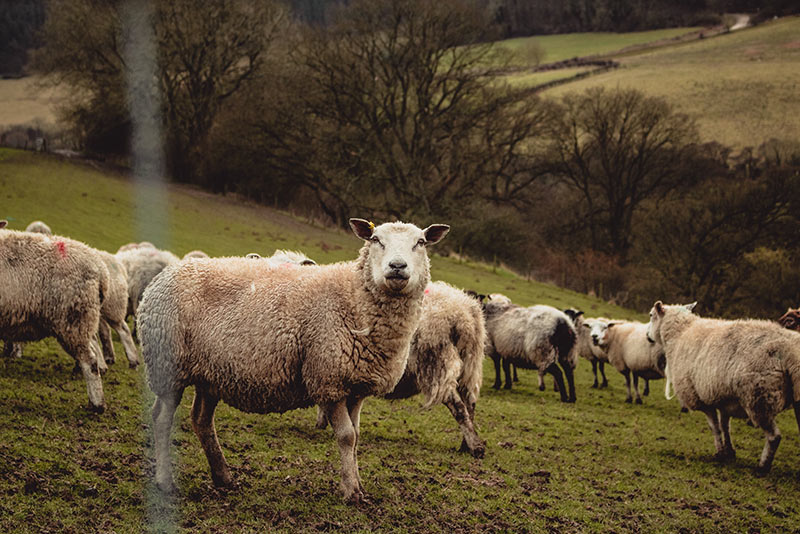The future of food
As society grapples with the urgency and complexity of transforming its food system, Oxford’s Food Climate Research Network offers stakeholders some much-needed clear thinking.
‘If you take the fact that food uses about 40% of the Earth’s land then there are huge implications for deforestation and biodiversity loss,’ says Dr Tara Garnett, leader of the Food Climate Research Network (FCRN). ‘It also uses 70% of our irrigation water; it contributes nearly 30% of global greenhouse gas emissions; and we have on the one hand 2 billion people worldwide who suffer from the problems of overconsumption, and on the other about 800 million who don’t get enough to eat.’
When Dr Garnett established the FCRN in 2005, the idea that food had such a wide-ranging impact was not well known. ‘The focus of concern when it came to food sustainability at that time was food miles and transport,’ she explains. ‘But gradually over the years we’ve come to recognise that the food system contributes hugely to a range of social and environmental problems, and that it also has an important part to play in a solution for a more sustainable future as well.’
By conducting, synthesising and communicating research at the intersection of food, climate and broader sustainability issues, the network has played a key role in helping to shift this perspective and shape the wider food systems agenda. It has a particular focus on animal production and consumption, an area where many different issues converge. ‘There’s the animal welfare story as well as the cultural value of meat,’ says Dr Garnett. ‘You have to look at it all together.’
 Grazing sheep. Photo by Will Kirk/Pexels
Grazing sheep. Photo by Will Kirk/Pexels
Over the past 16 years the FCRN has published a number of milestone reports on emerging or controversial issues of concern. Through its recent Planting Up Progress project, for example, the network looked at the extent to which existing metrics can effectively assess the food industry’s progress in delivering sustainable and healthy diets. Its findings were not overly positive. ‘We came to the conclusion that the metrics out there are either missing, or where there are metrics, the food industry is not using them or performing very badly against them,’ Dr Garnett explains. ‘We need a way of holding the industry and its investors to account.’
In recent years the network has also explored scenarios for achieving a 70% cut in food-related greenhouse gas emissions, considered effective ways of shifting people’s consumption patterns, and tackled issues around soil carbon sequestration – something that Dr Garnett describes as ‘a very live topic’ when it comes to discussing nature-based solutions to climate change. Whatever the focus of its work, however, the FCRN leaves advocacy to others, seeking instead to provide decision makers with the critical thinking they need in order to take effective action on food system sustainability.
The freedom that the network has had to pursue topics such as these, as well as interact in the way it does with the food systems community, has been the direct result of support received from the Daniel and Nina Carasso Foundation. ‘It’s been absolutely invaluable,’ says Dr Garnett. ‘The foundation has given us space to do ideas exploration and knowledge translation, which I think is so important if research is going to have impact.’
‘I have quite strong opinions but there are plenty of people with strong opinions. My role is to step back and act as a critical friend’
The network currently has more than 3,000 members from across the food systems community, but has ambitions to grow further. Later this year it will morph into Table, a new collaboration between Oxford, Wageningen University and Research in the Netherlands and the Swedish University of Agricultural Sciences. Table will act as a platform to explore the underlying values, beliefs and assumptions that people bring to discussions about food – the goal being to identify points of consensus as well as areas where further research is needed to resolve disagreements.
‘Food is very politicised and polarised,’ says Dr Garnett. ‘We have these big campaigning organisations that say the food system should go in this or that direction. We’ve seen it with COVID-19. Some people are saying that food systems need to re-localise, others are saying that global food systems work because there’s food in the shops. What we want to do is explore why polarisation like this exists, and how it relates to the beliefs that people have about how the world works, how humans work, the role of technology and so forth.’
Acknowledging the complexity of the debate, Dr Garnett sees her role first and foremost as a critical friend. ‘Yes, the world is very, very complicated and to an extent there’s always a danger of making it even more complicated,’ she says. ‘Our job is to help people navigate the options, understand what assumptions they’re bringing to the debate, and offer some helpful clear thinking.’
The FCRN is part of the Environmental Change Institute’s Food Systems Group and the Oxford Martin Programme on the Future of Food. The network is currently fundraising to enable its transition to Table and ensure it can move forward on a firm financial footing.
SUPPORT THE FCRN'S WORK